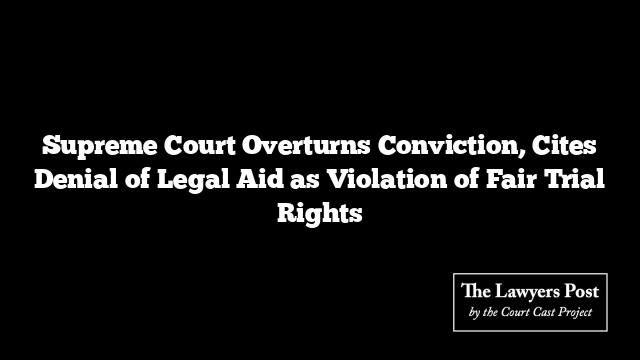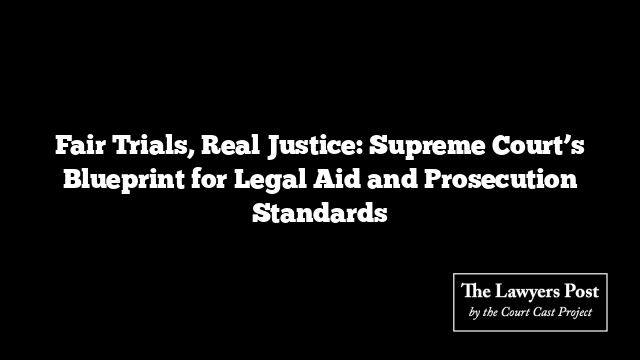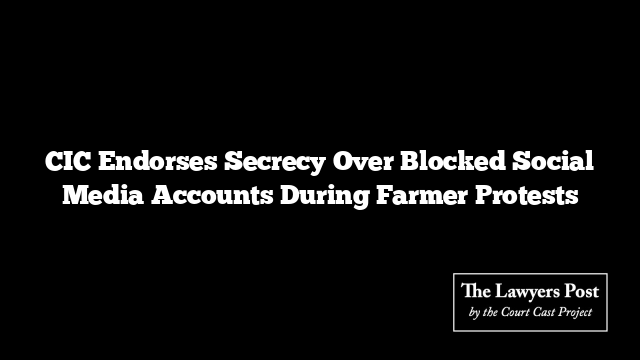In a landmark ruling, the Supreme Court nullified the life imprisonment sentence of a man accused of the rape and murder of a nine-year-old girl, highlighting egregious lapses in providing him legal representation during the trial.
The Court expressed deep concern over the accused’s lack of legal aid during critical phases of the trial, including the prosecution’s examination-in-chief. This omission deprived the accused of the opportunity to contest leading questions—an essential right in ensuring a fair trial.
“It is alarming that the examination-in-chief of a prosecution witness was recorded without the accused being represented by a legal aid counsel. This undermines the accused’s ability to object to key aspects of the testimony,” observed the bench, led by Justices Abhay S. Oka, Ahsanuddin Amanullah, and A.G. Masih.
The case underscored the constitutional mandate of Article 21, which guarantees the right to free legal aid for those unable to afford representation. The Court reiterated that trial courts bear the responsibility of informing accused individuals of this right.
Critical Failures in Trial Process
The accused contended that he was unrepresented until charges were framed and that pivotal evidence against him was not presented during his Section 313 Cr.P.C. examination. These procedural failures, he argued, prejudiced his defense and warranted his acquittal.
Further, the accused raised doubts about the recovery of key evidence, such as the victim’s slippers and underwear, citing irregularities in the recovery memo and the prosecution’s failure to examine witnesses related to this evidence.
The Supreme Court concurred, noting that the trial court’s failure to disclose incriminating material to the accused significantly impaired his ability to mount a defense. Justice Oka’s judgment emphasized that withholding such evidence deprived the accused of the opportunity to respond or present counter-evidence effectively.
Role of Public Prosecutors and Trial Courts
The Court also delineated the critical role of public prosecutors in ensuring fairness. Prosecutors must actively ensure that trial courts inform unrepresented accused persons of their rights and comply with procedural safeguards.
“A public prosecutor must assist the court in conducting trials that are both lawful and equitable. It is their duty to ensure that all incriminating material is presented to the accused in an understandable manner,” the bench stated.
Restoring Justice
The bench concluded that the procedural lapses amounted to a breach of the accused’s fundamental rights, rendering the trial and conviction fundamentally flawed. The Court overturned the conviction and commended the contributions of legal experts appointed to assist in the case.
This judgment reinforces the judiciary’s commitment to safeguarding the constitutional rights of individuals, particularly the marginalized, while underscoring the imperative of a fair trial for all.





